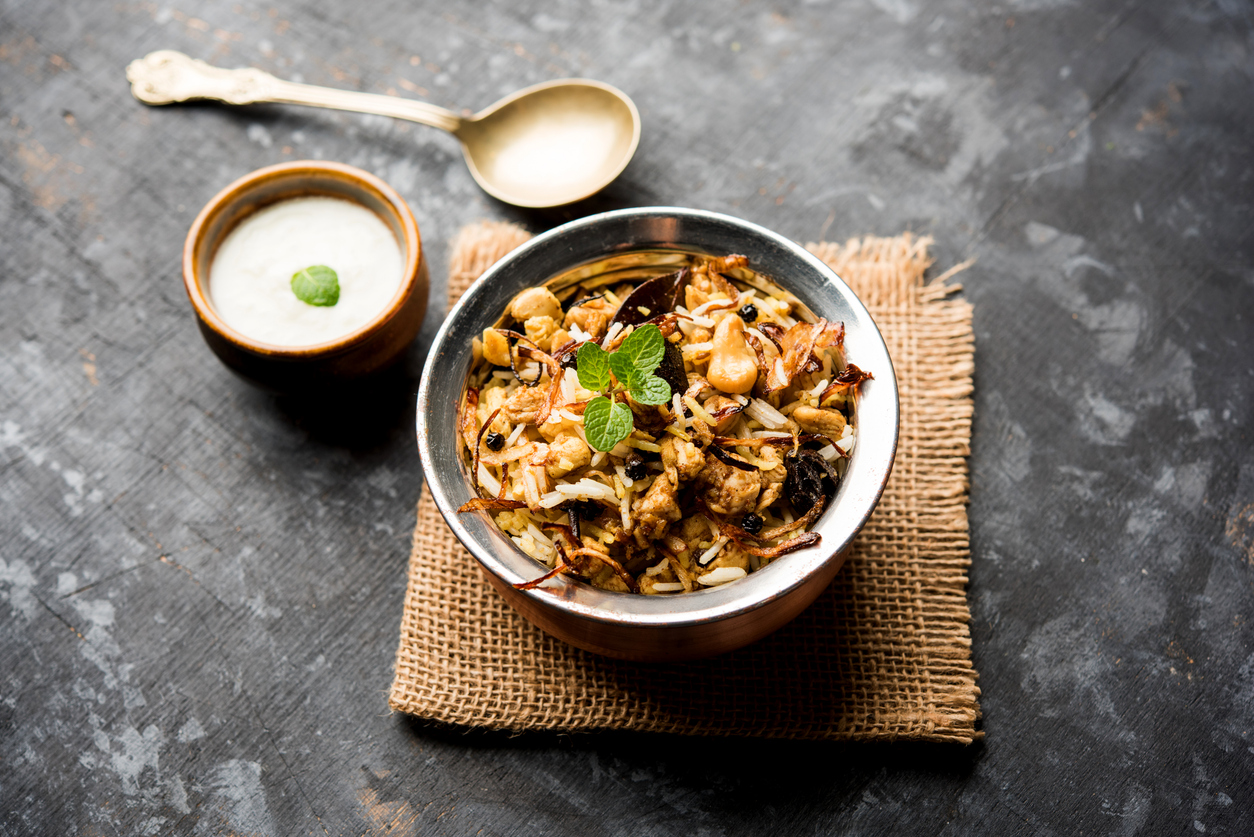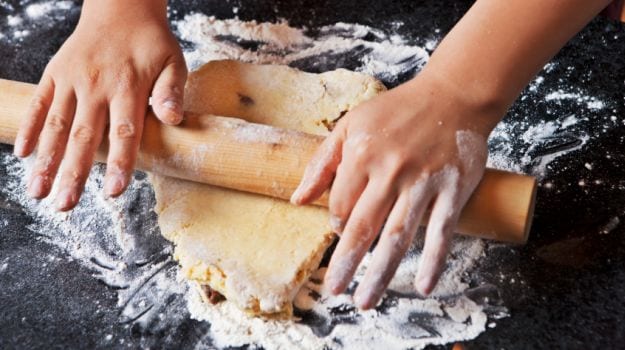Image via iStockWhen our oldest child left for college last fall, I knew I would miss him terribly. But would he miss or even think about home? We're really close, but Solomon is an independent guy and had spent plenty of time away, so I was pretty sure he wouldn't be homesick. I was happy to call him weekly, but I wasn't sure what might prompt him to initiate a call or text.
The answer? A cooking question: "How do I make that chicken? How much lime do I use in that dressing? What salad should I bring to a party?" Even without a kitchen in his freshman dorm, Solomon found plenty of opportunities to cook at friends' houses and on team trips.
When he left for college, Solomon was among the more kitchen-savvy (and enthusiastic) boys in his crowd, but some of my friends worry that their kids don't have even the most basic cooking skills they might need in their next phase of life. My friend Betsy is pretty sure her son Alex, who leaves for college in August, doesn't know what "sauté" means, let alone how to do it. And despite Alex's facility at making no-cook dipping sauces, she can't recall him ever boiling water to make pasta (though she suspects he could figure it out).
College students tell me they cook, or at least aspire to, for a number of reasons. Some of the biggest are wanting healthier or tastier food than what is available on campus, saving money, being creative, managing food allergies, or just craving something homemade when they're hungry.
Sometimes the realities for college students, especially with no car and no kitchen, keep them from cooking much until after their freshman year. But Solomon reported that he had some of his best times last year cooking for or with friends, and he was proud to show off his kitchen skills when the opportunity arose. He was particularly psyched to get invited back to the home of some senior girls he'd befriended to cook more meals after he made them "Purple Pancakes."
So what basic cooking skills do kids need? Here are basic techniques kids may want to master this summer. In my experience teaching kids in the kitchen, I've learned not to assume that everyone knows what may seem obvious to more seasoned cooks:
- Wield a knife: The biggest and most undervalued key to having good knife skills is keeping knives sharp. Even an inexpensive, easy-to-use sharpener can turn your dull blades into well-honed slicing-and-dicing machines. Teach your child to sharpen knives frequently, and have them learn to safely and effectively hold and use a chef's knife. YouTube videos and practice can be very effective teachers.
- Boil water: If you can boil water, you can make pasta, rice, hard-boiled eggs, mashed potatoes or steamed vegetables. If using a gas stove, turn the heat as high as it will go without the flame extending past the edge of the pot. Cover to bring the liquid to a quicker boil.
- Sauté: If your kid can melt some oil or butter in a skillet, they can scramble or fry an egg and sauté vegetables, tofu or meat. Make sure the oil or butter is hot before adding the food, and stir occasionally with a spatula or spoon to keep food cooking evenly. If using a nonstick pan, preheat it with the oil or butter already in the pan, and use nonmetal utensils to avoid scratching the surface.
- Bake and roast: I'm guessing your child has baked cookies at least once. But if not, teach them about preheating the oven, buttering or oiling the pan to make cleanup easier, setting a timer so food doesn't burn, using mitts to take hot pans out of the oven, knowing the difference between baking and broiling (we broil to brown the top of food quickly), and using high heat to roast vegetables or meat quickly and effectively.
- Use a slow cooker: With the right ratio of food to liquid, you can slow-cook almost anything, from a whole chicken, to soups and stews, to beans or "baked" potatoes. Slow cookers work at low heat for hours without anyone needing to be home to tend to it. Many college students tell me they use this appliance more than any other because they can put the chicken and seasonings in it in the morning or early afternoon, then come home to a hot and perfectly cooked meal after class.
- Plan meals: If we teach our kids how to plan in advance for a meal or two, figure out what to serve to make a complete and nutritious dinner, make a grocery list and shop, and know when to start cooking each dish so they will all be ready at the same time, they'll have the essential skills to cook anywhere, anytime. (My husband's specialty is cold scrambled eggs with hot toast!)
- Do the dishes: It's not glamorous, but remind kids about the importance of cleaning up after eating, including wiping down counters and closing packages tightly so food bits don't attract critters. (Otherwise, they'll be unlikely to want to cook again too soon!)
Summertime, when the pace of life may be just a little slower, is the ideal time to get your teen cooking - especially if they leave in a couple of months for their next phase of life. Making one of their favorite things to eat -- whether it's burgers, salad, corn on the cob, pasta or omelets - is a great place to get them started on picking up basic cooking skills. Many families find it works well to have each family member take on a meal each week. They might even like to make a checklist of dishes they'd like to master before they leave home.
Let your teen decide how involved or uninvolved in the cooking process they want you to be. Chances are, once they see how easy it is to cook and how satisfying it is to eat something they have prepared, their confidence and interest will grow. You'll both feel better knowing they can start to build the base for a lifetime of skills and meals to feed themselves, their friends and families (even if they still seek your advice by text from time to time).
(c) The Washington Post(This story has not been edited by NDTV staff and is auto-generated from a syndicated feed.)







